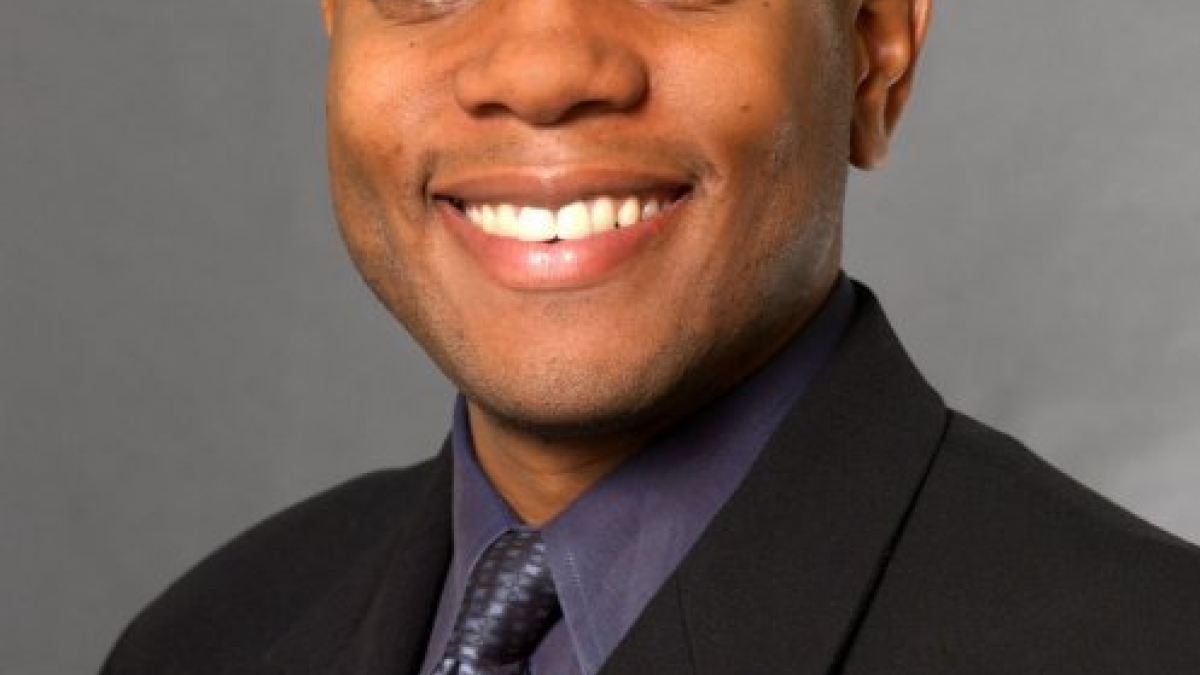Forum to address border issues: fear, immigration, justice

Say the word “border” and images of migrants struggling through the desert, hoping to evade capture, come to mind – at least in America’s southern border states.
Add the words “immigration” and “race” to the conversation, and hackles start to go up.
Why are people so afraid of those words?
That is the question that will be addressed in a free forum titled “Race and the Border: At the Intersection of Fear, Immigration, and Justice” to take place at 6 p.m., Tuesday, Oct. 9, in the Phoenix College Dome, 3110 N. 10th Ave., Phoenix.
The event, part of the Healing Racism Community Dialogue Series on Race Relations, is sponsored by ASU’s Center for the Study of Race and Democracy (CSRD). Panelists discussing issues related to U.S. immigration law, race and fear will be Todd Landfried, executive director, Arizona Employers for Immigration Reform; Tia Oso, Arizona organizer, Black Alliance for Just Immigration and co-chair of Black/Brown Coalition of Arizona; and Sarah "Amira" De la Garza, associate professor and Southwest Borderlands scholar and director, Innovative Inquiry Initiative in ASU’s Hugh Downs School of Human Communication.
“Americans are so afraid of the border because it represents a demarcation of struggle,” said Matthew Whitaker, director of CSRD and ASU Foundation Professor of History. “When people think of the border, they think of immigration, which is a very emotional and political issue – one that is imbibed with all sorts of ethnic, racial, classist, and even gendered notions of who is worthy of citizenship. When people think of those things, it engenders a lot of fear and apprehension.
“This event is to help dispel some myths about who immigrants are, why they’re coming here, what their lives are like when they get here, and their relationship to economy, education, and health care and more.”
Whitaker said immigration fears are often intensified when the economy is in a recession.
“When things get tight we start looking at the new guy on the block. It’s about access and money – historically speaking, it seems that’s when all of our bias and baggage comes out.”
The Healing Racism Community Dialogue Series on Race Relations, which now is one of the cornerstone programs of CSRD, grew out of various anti-racist events in Phoenix that were held between the spring of 2004 and the spring of 2005. Whitaker, the Rev. Phillip Rice, pastor of the Community of Hope Church in Phoenix, Lee Storey of Phoenix’s non-profit Ambassadors for Change, Godwin Out, of OTU Business Consulting, and Rory Gilbert, Senior Manager, HR Solutions Center, Inclusion, Maricopa Community Colleges, organized the first event, a forum titled “The Color of Fear.”
Since then, the dialogue series has included many more such events.
“We like to take on difficult, challenging and emotional issues and examine them in a civil, coherent and informed way,” Whitaker said. “The last time we had a forum on race and immigration was in 2006. At that event we had almost 200 people, including Minutemen, business leaders, health providers and others. When people arrived, you could feel the tension in the room. Many came for an informed and courteous conversation, but they feared that they would get another angry, belligerent confrontation. They were pleasantly surprised to be a part of a civil dialogue. Political and ideological enemies found themselves deep in passionate, but courteous discussion. It was revelatory and we proved that when people put our humanity first, even the toughest issues can be engaged constructively.”
One of the Healing Racism ground rules is that “We are there to have a civil conversation,” Whitaker said. “We’re not going to suppress any opinions, but we’re going to express all opinions respectfully.”
“People want a space where they are protected and where they feel comfortable enough to be vulnerable, not be attacked by someone who disagrees with them. Our mission is to help build an informed citizenry and more unified communities. We can only do that if we have some space where people can go and not be shouted down.”
CSRD sponsors events throughout the year. The next event that the CSRD will support after “Race and the Border” will be from 6 to 8:30 p.m., Monday, Oct. 15, at Scottsdale’s Civic Center Library, 3839 N. Drinkwater Blvd., Scottsdale, titled “Listen Up! A Community Conversation on Civility.” The event is co-sponsored by the Scottsdale Human Relations Commission and the Scottsdale Public Library.
Panelists will be Fred Duvall, board member, National Institute for Civil Discourse; Whitaker; Lisa Urias, regional expert on civil rights and communication; Chris Coppola, Scottsdale community editor for the Arizona Republic; and Cynthia Wenstrom, Scottsdale Leadership board of directors.
For more information about CSRD and all the events, go to csrd.asu.edu.